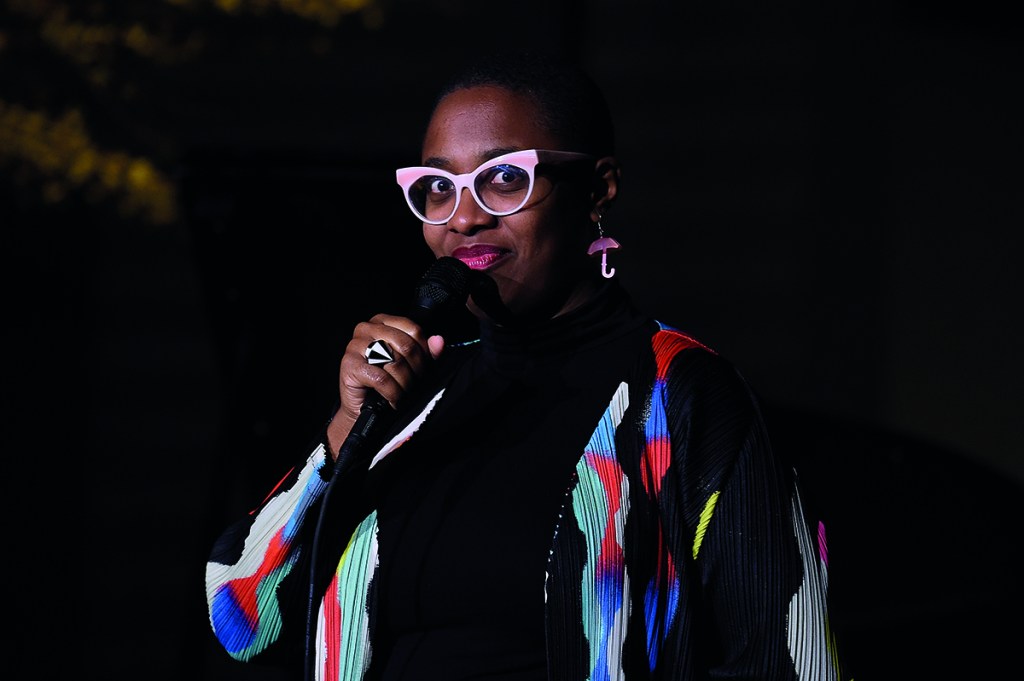Jazz has traditionally been a male preserve — all 15 of the Jazz at Lincoln Center Orchestra are men — but jazz singing is the exception. Later this year, Netflix will release Ma Rainey’s Black Bottom, based on the superb play by August Wilson and starring Chadwick Boseman and Viola Davis. If the movie adheres to the spirit of the play and its subject (Rainey, the ‘Mother of the Blues’, sang frankly sexual songs in a moaning style), it is sure to ignite a fresh interest in her tempestuous life and career.
The imperious Rainey wasn’t simply a gifted singer, but also an astute talent-spotter. Touring through Chattanooga with her Rabbit Foot Minstrels, she discovered a 16-year-old Bessie Smith and took her on the road; the two are rumored to have had a lesbian relationship. In 1923, Smith began recording for Columbia and quickly sold several million records. Two years later, Louis Armstrong accompanied her on the smash hit ‘Reckless Blues’. The physically imposing ‘Empress of the Blues’ relished getting into battles with audience and managers alike, and her weakness for the bottle dissipated her immense talents. But the template had been set. In every era, whether it’s that of Billie Holliday or Ella Fitzgerald, Nina Simone or Sarah Vaughan, female singers have led from the front of the stage.
The latest entrant into these lofty vocal sweepstakes is the fabulously talented Cécile McLorin Salvant. So there I stood on a blustery evening in a long line outside the Village Vanguard with my friend Jenny Schuessler of the New York Times. Was it worth the freezing wait? You’d better believe it.
From the instant that Salvant shimmered onto the stage wearing her trademark oversized white glasses and a red gown, she rubbed a sonic Aladdin’s Lamp and created a magic carpet that swept her audience into an ethereal realm. Forget the photos of the various jazz deities, ranging from Sonny Rollins to Dexter Gordon, that gaze impassively from the club’s green baize walls. On this night, it was Salvant who ruled. Her crackerjack band — with the formidably talented Sullivan Fortner on piano and the veteran James Chirillo on banjo — didn’t hurt, either.
There is a hauntingly translucent quality to Salvant’s voice. Its purity reminded me of staring down into the pristine and clear depths of Crater Lake in Oregon. Salvant doesn’t have the lusty rawness of Bessie Smith, but she persuasively evokes Smith with her tonal ventriloquism, even if she isn’t a belter. She doesn’t scat around like Ella Fitzgerald either. Anyway, too much time has passed for that to be the case. Salvant is a sophisticated lady whose finesse and subtlety continually convey the shock of the new. She has an uncanny talent for altering her vocal shadings and extracting every last bit of emotion from a song, from an impassioned rendition of Brecht and Weill’s ‘Pirate Jenny’, recorded live by Nina Simone in 1964, which ended in a crepuscular hush, to a beguiling take on Shania Twain’s ‘You’re Still the One’.
By the end of the night Salvant, who has a droll sense of humor, had the audience singing along with her on Twain’s hit so enthusiastically that she couldn’t control us. ‘It wasn’t supposed to be that way!’ she said, doubling over and laughing.
Salvant’s unusual background may explain her fresh approach. Born in 1989 in Miami to a Haitian doctor and a French mother, she immersed herself in classical music. Not until in 2007, when she was studying at the Conservatoire Darius Milhaud in Aix-en-Provence, did she dip a toe in jazz waters. But she had listened to and absorbed multifarious musical influences as a child.
‘I was lucky enough to grow up in a house where we listened to all kinds of music,’ she has said. ‘We listened to Haitian, hip-hop, soul, classical, jazz, gospel and Cuban music, to name a few. When you have access to that as a child, it just opens up your world.’ Prodded by her mother, she entered the Thelonious Monk Competition in 2010 and won first prize. As Wynton Marsalis says, ‘You get a singer like this once in a generation or two.’
Since then, Salvant has recorded five albums, including the Grammy-winning For One to Love (2016) and Dreams and Daggers (2018), and now The Window, which I picked up at the Vanguard that evening. When I returned home and plopped the LP on my turntable, her voice poleaxed me all over again. The nuances and transparency and obvious intelligence of her vocal performances are so captivating as to render them almost impervious to criticism. Her credo might well be what Bessie Smith sang in 1929, ‘I’ve Got What It Takes’.


















